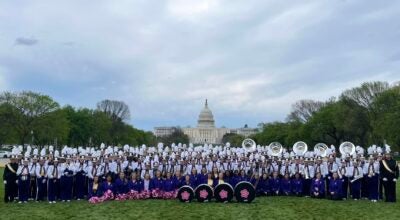GED program needs and successes told at Rotary
Published 8:52 pm Tuesday, October 28, 2014
There are many roads to success as Debbie McIntyre, director of the Adult Education Program at Bainbridge State College, pointed out at Tuesday’s Rotary Club meeting.
She said graduating from high school, as we traditionally know it, is challenging for some, especially for those who want to move faster than high school allows. She also pointed out obstacles others may have to completing high school the old fashioned way. Some have families early, have to go to work to support those families, and some don’t have the support they need at home to fulfill all the requirements.
BSC Adult Education is answering the varied needs of the community to help those acquire the GED credentialing they need to get into college. They also work with displaced workers, as well as employees who need a GED to get a promotion or find a new job. They work with the incarcerated, the homeless, and all those who want to better their lives.
McIntyre cited several statistics that point to the problem.
• Over 1 million Georgia residents over the age of 18 do not hold a high school diploma. There are over 40 million in the U.S., and that makes up 13 percent of our population.
• Over 40 percent of those folks have less than a ninth grade education.
In spite of these dismal numbers, only 10 percent of adults who could benefit from literacy programs are being served by state and federally funded programs.
These deficiencies directly impact the rates of crime, poverty, teenage pregnancy and substance abuse. There is also a large economic impact on communities, as earning powers go down according to the amount of education received. McIntyre said someone with less than a high school diploma earns $28,800 per capita, while a person with a bachelor’s degree may be able to earn $70,000 per year. Likewise, the person without the high school diploma has a ten percent chance of being unemployed, while the person with a bachelor’s has a three percent chance of not working.
The Adult Education program that serves Decatur, Early, Miller and Seminole counties was historically hosted by the Decatur County Schools. It was very successful and resulted in hundreds of GED graduates.
In 2012 the program came under the sponsorship of Bainbridge State College as the Technical College System of Georgia wanted all adult education programs to be supported by colleges.
That first year they enrolled 323 students and had 75 graduates. In 2013 there were 321 enrolled and 85 graduated the first half, and five in the second half.
A drastic reduction has occurred this year, as 147 students have enrolled since July and only one has graduated. McIntyre pointed out the biggest reason for this is the GED test has been re-written to be more in line with what is now being taught in high schools. The new test is much more rigid and requires a need for critical thinking and higher math skills. The computer-based test is also more stringent and requires a high level of computer literacy.
At the Bainbridge site there is a teaching staff of two full-time and one part-time instructor. There is also a transition specialist to provide assistance and guidance with college and career choices.
McIntyre was accompanied to the Rotary meeting by Lorraine Hamlin, lead teacher, and two 2013 GED graduates, Jenira Castillo and Donaver Thomas, both of whom are continuing their education enrolled at BSC in medical fields.





